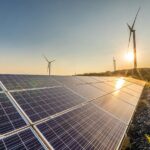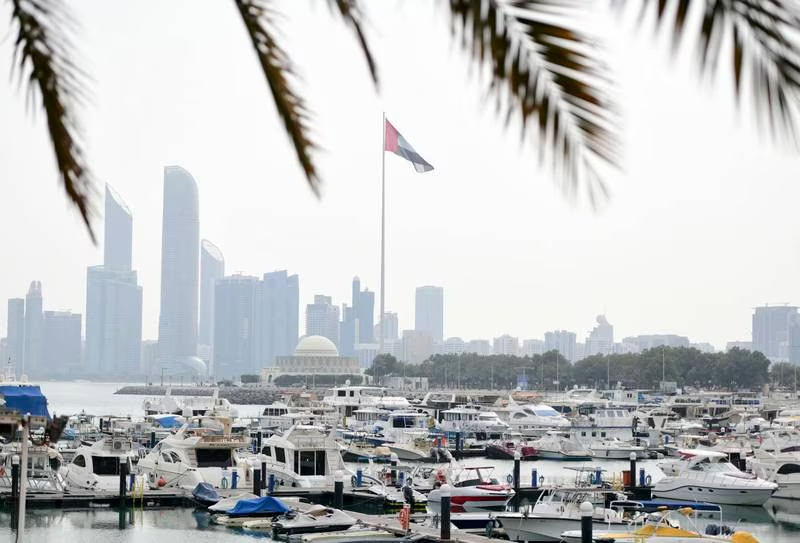The UAE’s economy, the Arab world’s second-largest, grew by 3.8 per cent on an annual basis in the first quarter of this year, boosted by its strong non-oil sector as it continues to push for diversification.
Gross domestic product in the three months to the end of March increased to Dh418.3 billion ($113.9 billion), from Dh403.3 billion a year ago, Abdulla bin Touq, Minister of Economy, said on Tuesday, quoting preliminary estimates from the Federal Centre for Competitiveness and Statistics.
Most sectors and economic activities that serve as “the key pillars of the national economy made significant contributions”, Mr bin Touq said.
Non-oil GDP rose 4.5 per cent year on year to Dh312 billion, up from Dh298.5 billion in the same period last year, reflecting the success of the UAE’s efforts to promote the growth of non-oil economic sectors and transition to an economic model based on knowledge and innovation.
“The flexible economic policies that we adopted to support this goal rely on speed and accuracy in responding to global changes, the formulation of forward-looking strategies and plans to drive economic diversification, and the constant upgradation of economic procedures and legislation,” Mr bin Touq said.
The country’s economy, which rebounded strongly last year from the slowdown caused by Covid-19, has carried the growth momentum into 2023. The resurgence has come on the back of higher oil prices and government measures to mitigate the impact of the pandemic.
The UAE’s GDP grew by 7.9 per cent in 2022, the most in 11 years, to Dh1.62 trillion at constant prices in 2022, supported by the non-oil sector.
An array of measures adopted by the government have improved the resilience of the economy despite volatile world commodity prices, inflation and monetary policy uncertainty, Mr bin Touq said in March.
Business activity in the non-oil private sector strengthened in June as new order growth hit a four-year high, the most pronounced improvement since June 2019.
The seasonally adjusted S&P Global purchasing managers’ index reading climbed to 56.9 in June, from 55.5 in May, with the health of the non-oil private sector improving in each of the past 31 survey periods.
The 50-point index mark separates expansion from contraction.
The UAE economy is expected to expand by 3.3 per cent this year and 4.3 per cent in 2024, according to the UAE Central Bank data.
Looking ahead, the Emirates aims to double the size of its economy to Dh3 trillion by 2031, with a focus on boosting non-oil exports and the tourism sector.
The transport and storage sector saw the biggest percentage rise in of terms of growth, contributing Dh21.8 billion to the economy, an almost 11 per cent increase on an annual basis during the first quarter, the data showed on Tuesday.
The construction sector was second, posting 9.2 per cent year-on-year growth to Dh36.3 billion, followed by accommodation and food services, which grew 7.8 per cent on an annual basis.
The finance and insurance sector recorded 7.7 per cent growth, while wholesale and retail sector grew by 5.4 per cent.
Non-financial projects sector grew 3.5 per cent, ICT improved 3.3 per cent and real estate posted a 3.1 per cent growth, according to the preliminary data.
“These efforts have helped to maintain the UAE’s position as an attractive environment for investments on an ongoing basis, thus underlining foreign trade and openness to the world as the key aspects of its global partnerships,” Mr bin Touq said.
He said the latest results reflect the UAE’s resilience sustained growth momentum, moving a step closer to achieving the economic objectives of the We the UAE 2031 vision.
“This year, we will launch a new phase of sustainable economic development in line with the continuing national efforts to scale greater heights in terms of economic performance,” Mr bin Touq said.
Source : TheNationalNews






































